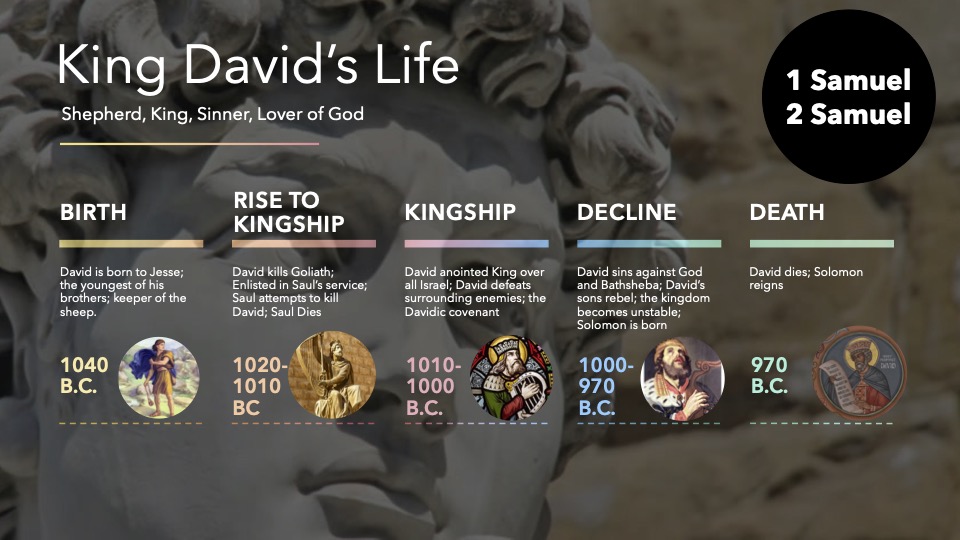
We recently began a new sermon series called The Broken King: The Story of David. Over the course of this series, we will produce several articles that will help us think well about the story of David in 1–2 Samuel and apply it to our lives. In this first article, we want to provide a basic guide to the books of 1–2 Samuel to provide some context for the life of David.
First and Second Samuel were originally one book that told the story of the beginnings of Israel’s kingship through the end of David’s life. These two books answer many questions for readers: How did Israel come to have a monarchy? What type of king did Israel need? How did Israel’s kings measure up to God’s standards? Would God’s promise to David hold true?
As we look at David’s life as the king of Israel, we should recall that long before the first king, Saul, stepped to the throne, God gave requirements for Israel’s kings. In Deuteronomy 17:14ff, God gives basic stipulations or laws for Israel’s kings:
- God would choose the king (vs. 15)
- The king must be an Israelite (vs. 15)
- The king must not acquire horses for himself, especially from Egypt (vs. 16)
- The king must not acquire many wives for himself (vs. 17)
- The king must not acquire excessive silver and gold (vs. 17)
- The king must write a copy of the Mosaic law for himself and meditate on it and obey it (vs. 18)
These laws should be the standard we use to evaluate Israel’s kings, including David. In 1 Samuel 16, we saw that David was chosen by God. All of Jesse’s other sons were rejected as king, not because there was something wrong with them, but because God had already chosen David. God does not look on the outward appearance, but he looks on the heart (1 Samuel 16:7). God’s measure of success and usefulness is internal, not external.
We live in a world enamored by the external. We evaluate and are evaluated on our performance, the way we look, and how much and what kind of possessions we have. God is not ultimately concerned with any of this when he is looking for someone to serve him. He is looking for the humble, the dependent, and those who are confident in Him.
God wanted his people Israel to be led by his king, dependent on his power to save, and guided by his word. David fulfilled the role of Israel’s king for 40 years, but as we have said, David was a broken king. He failed on multiple accounts and did not measure up to God’s standard—but the reality is, no one would have measured up. David’s insufficiency as king points us toward the sufficiency of the perfect king, Jesus, and his desire has not changed. God wants us to look to our perfect king, Jesus, chosen by God, who kept the law perfectly and depended on God completely. Jesus is our saving king. He wants us to follow him and submit to him as the good king who leads his people. Have you submitted your life to Jesus?
As we continue our series on the life of David, be on the lookout for God’s presence, grace, mercy, and provision. Even though like David, we are all broken servants of God, he continues to show us grace and walk with us through life. He does not abandon those who trust in Jesus—He will be faithful to that promise.



